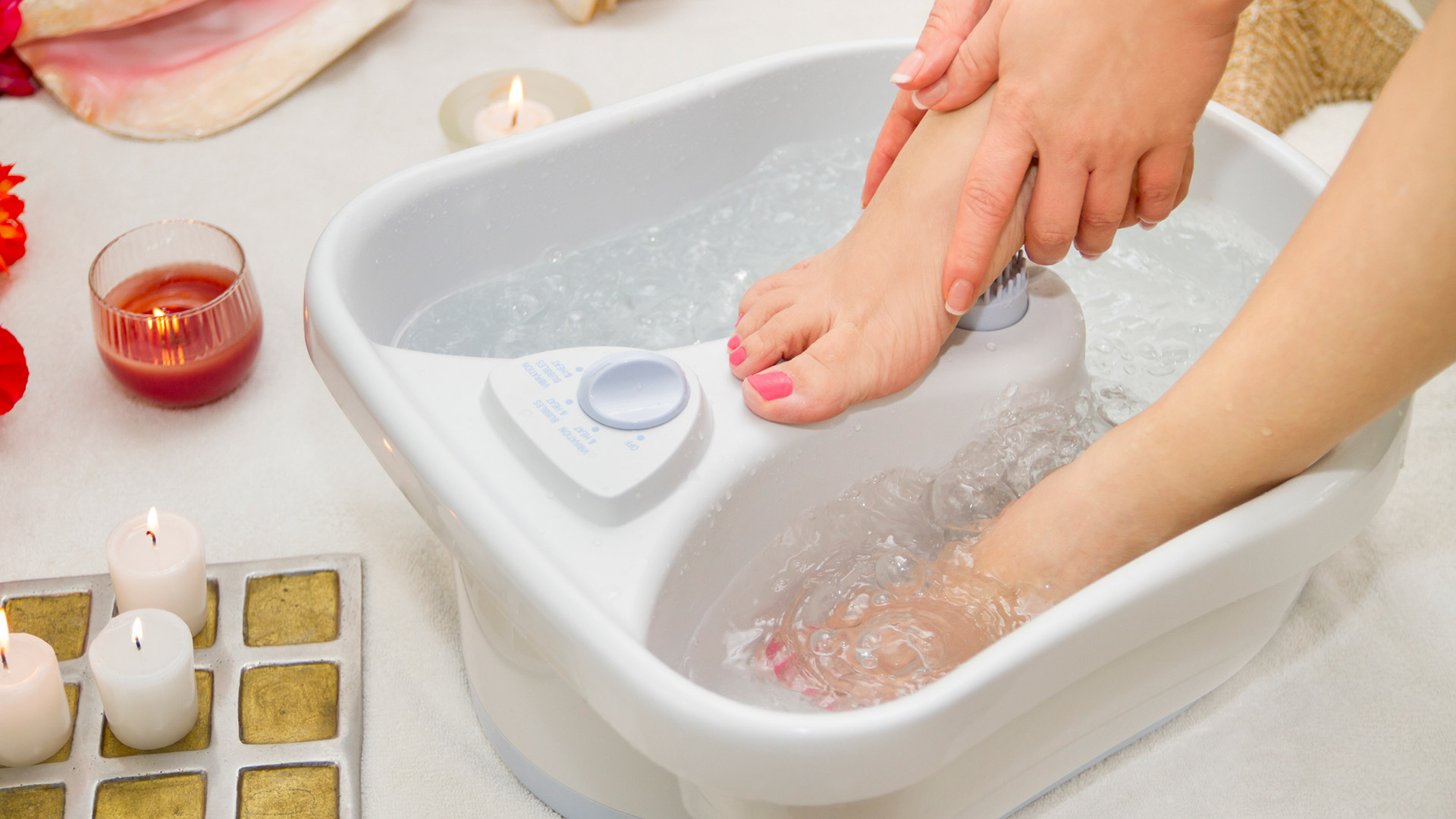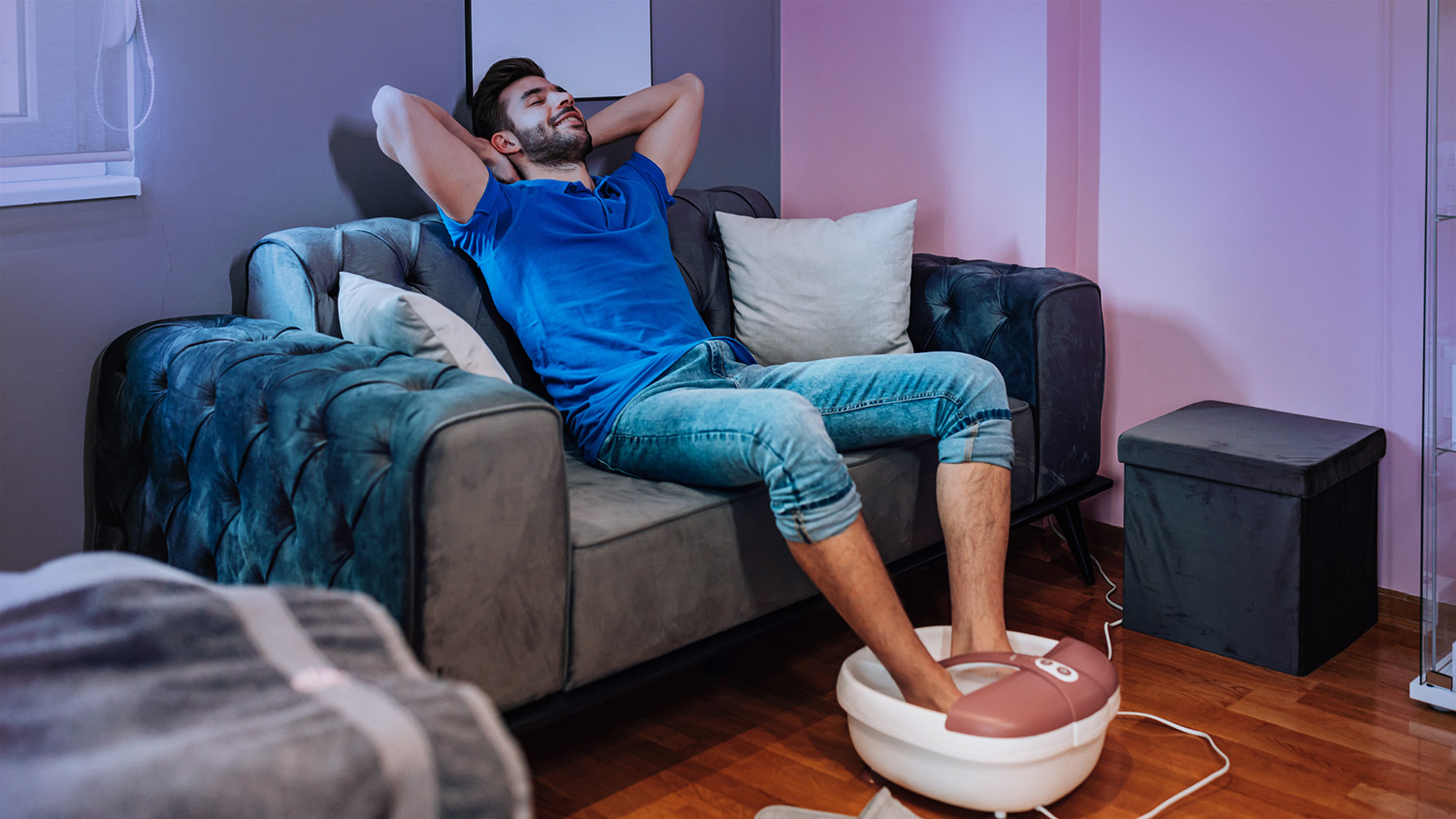Can a warm foot bath before bed help you sleep better?
We ask the experts if soaking your feet before bed can really help you sleep better

Sign up for breaking news, reviews, opinion, top tech deals, and more.
You are now subscribed
Your newsletter sign-up was successful
Sleep is one of the most important things we can do for our body - giving it the rest and recuperation it needs. While there are many ways to help you get to sleep - can a footbath actually make you snooze easier?
Research shows that a warm footbath, before bed, can help with sleep quality - but can it beat other remedies such as lavender, meditation and avoiding caffeine and alcohol? The remedy, because of its ability to control your body temperature could have a positive effect on how long it takes you to fall asleep and how well you sleep.
Of course, getting the best night's sleep also helps when you’re comfortable - so making sure you have the best mattress and best pillow can help to alleviate tossing and turning. We look at the latest studies and talk to Theresa Schnorbach, sleep expert at Emma about whether soaking your feet can help you snooze peacefully.
Can a warm foot bath help you sleep?
So, is it actually true? There have been multiple studies that show that oddly, dipping your feet in hot water before you snooze can help you sleep. One study in 2020 showed that a warm footbath helped sleep quality in menopausal women, while another study by Tabriz University of Medical Sciences studied the sleep quality in the elderly - with the participants that bathed their feet in warm water before bed getting the best sleep quality results.
Schnorbach explains further how a warm footbath can help: “You can get a similar effect from cuddling before bed or snuggling up with a duvet - the key is to encourage blood flow to the skin to help reduce core temperature.”
How does a warm foot bath help you fall asleep faster?

The studies prove that in practice the theory of a warm foot bath can help you sleep better, but what’s the science behind it? The sleep expert explains that it’s all to do with how your body temperature changes.
“People often underestimate how much the temperature of their sleep environments can impact sleep. A key aspect of falling asleep is cooling down the body,” explains Schnorbach.
Sign up for breaking news, reviews, opinion, top tech deals, and more.
“Perhaps counterintuitively, a warm foot bath is one way to help in reducing your core temperature by encouraging your blood vessels to dilate, thus losing excessive body heat. By promoting this drop in core body temperature, warm foot baths can help to facilitate the onset of sleep.”
What other benefits can you get from a warm foot bath?
On a particularly cold evening, after a hard day at work, a foot bath can be something to look forward to - and even if you’re not purchasing a footbath for the sleep benefits, it can be great for relaxation, says the sleep expert.
“Factoring in some ‘wind down’ time before bed into your sleep schedule is a great way to get better rest. Falling asleep requires our minds and bodies to be relaxed, so anything you can do to promote relaxation - such as taking a bath, reading a book, or meditation - can help you get a better night’s sleep.”
If you have a job where you’re constantly on your feet a warm foot bath can help with muscle ache and can also help to hydrate the skin.
The best way to soak your feet before bed

Like anything, there’s always the right way to do something, and Schnorbach says she’d recommend soaking your feet 1-1.5 hours before your intended sleep time - so, why is this? “This allows enough time for the post-bath cooling process to align with the body's natural drop in core temperature as bedtime approaches.”
She goes on to add: “To make the most of this wind-down time I would suggest avoiding distractions, such as tech, and instead using the time to relax your body and mind, perhaps with music or breathing exercises. If you like, you could also try using essential oils to aid relaxation. Many essential oils, such as lavender, are known for their soothing and calming properties.”
Does it actually work?
In a bid to see if the research was true, I tried soaking my feet in Renpho’s motorised Rollers foot bath a couple of nights before I went to bed to see if I slept better. I’d also heard that magnesium was great for sleep too, as it relaxes the muscles and the nervous system - so I sprinkled in some BetterYou magnesium flakes.
As a runner, both the footbath and the magnesium were a welcome treat - the first night I tried it out I’d just completed an 11-mile run, so my feet were in need of TLC, while I usually struggle to sleep after a particularly long run. Slipping my feet into the footbath felt a wave of relaxation I didn’t know I needed and I quickly switched off. The foot bath heated up fast and stayed warm, while the rollers gave my soles a sense of relief after pounding the pavement for two hours.
I made sure I took my feet out after an hour and let my body temperature cool down before bed, but I was already sleepy and as soon as I hit the pillow around an hour later I fell straight to sleep - which is rare for me. The second time I soaked my feet before I went to sleep my sleep quality was through the roof - checking my smartwatch I’d had over eight hours of sleep and spent over two hours in both deep and REM sleep.
When shouldn’t you soak your feet?
Of course, the method isn’t for all of us and if you have any health concerns check with your doctors first. If you have diabetes it’s probably best to avoid a footbath - as the American Diabetes Association warns that some who have diabetes can also suffer from poor circulation, meaning we may not feel the heat and it could lead to burns if the water gets too hot. Anyone with foot or ankle problems should also consult a medical professional first too.

Theresa Schnorbach is a psychologist and sleep scientist, specialized in Clinical Psychology and Cognitive Neuropsychology. She has completed post-graduate training in Cognitive Behavioural Therapy for Insomnia (CBT-I) with the German Sleep Society (DGSM), endorsed by the European Research Society. She works as a sleep specialist for bed brand Emma.

Sarah is a freelance writer - writing across titles including Woman&Home, Fit&Well, TechRadar, the Independent and the BBC. She covers a variety of subjects, including trends in beauty, business and wellness - but her biggest passions are travel and fitness. She can normally be found trying out the latest fitness class or on a plane to an exotic destination. While she loves to combine the two - signing up to do hiking holidays in LA, intense boot camps in Bali - last year she went on her dream activity holiday: paddleboarding around deserted islands in Croatia.